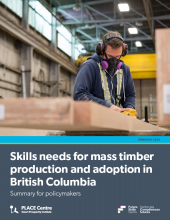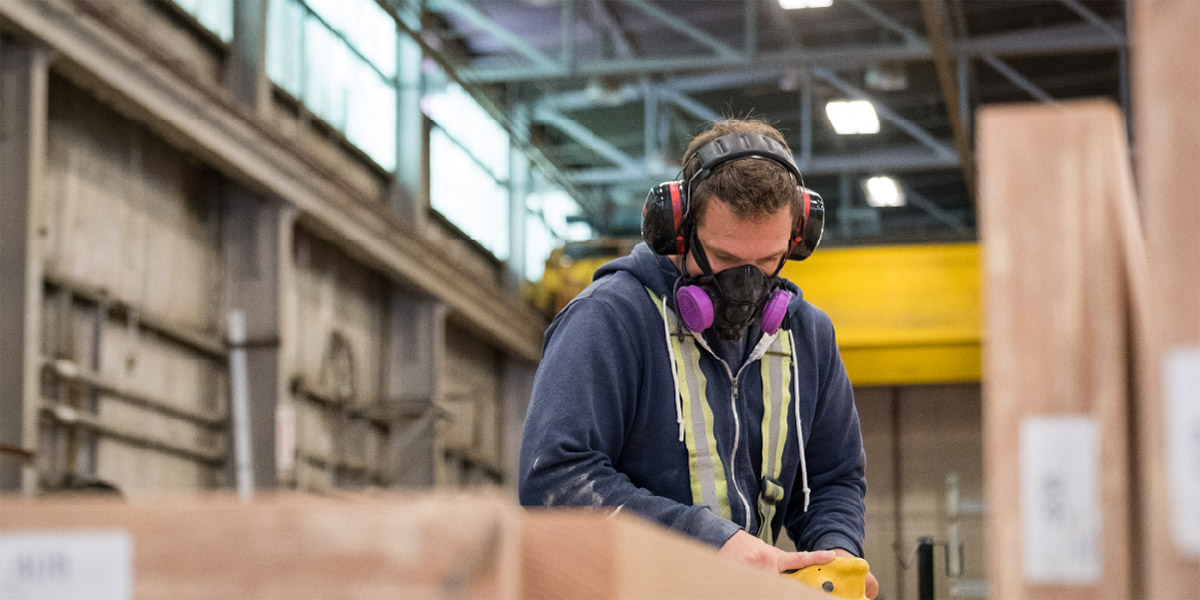Stakeholders in British Columbia are exploring the potential of mass timber, an engineered wood product used as a building material, to drive economic growth in a number of industries. A thriving mass timber sector could help generate novel opportunities for many forestry communities (that are currently experiencing a decline), as well as help build sustainable housing in the province.
As of 2023, more than 350 mass timber projects have been built (or are under construction) across the province. The BC Government projects ten new facilities in the province by 2035 which will create between 2,350 – 4,200 new jobs, and is supporting the initiative through its Mass Timber Action Plan.
However, a key step in helping capture these benefits is to understand how this emerging opportunity will change the skills needs of existing industries: How prepared are the workers to realize this opportunity? And how can industry, governments, and educational institutions support this workforce, and more rural, resource-dependent communities in the province’s north, in setting them up for success?
The Smart Prosperity Institute, in partnership with the Future Skills Centre, is publishing three reports that explore these questions. Our work is the product of a year-long research process involving quantitative analysis, surveys, interviews, and in-person workshops in communities around the province.
- Framing British Columbia’s low-carbon future: Identifying the skills and workforce needs of BC’s growing mass timber sector examines the mass timber supply chain from forestry to construction in British Columbia. It identifies what the growth of mass timber in BC means for workers in the context of current and future skills requirements.
- Making mass timber in Northern BC: An evaluation of the readiness of workers and policies for producing more mass timber products in North-Eastern British Columbia evaluates the skills ecosystem in North-Eastern BC. It compares the ecosystem to global success stories and identifies solutions to set up the region for success.
- Skills needs for mass timber production and adoption in British Columbia: Summary for policymakers is a ten-page summary of the major findings and key takeaways from the first two reports.
- Read ’Framing British Columbia’s low-carbon future’
- Read ’Making mass timber in Northern BC’
- Read ’Skills needs for mass timber production and adoption in British Columbia’



